On Friday (5/1), Ruby Sparks will be releasing IN YOUR HEAD, the band’s debut EP. Despite being released about a month into the COVID-19 quarantine, the songs for the project were written in the three years prior, and completed before social distancing was a commonly recognized phrase. The themes of isolation, personal growth, and evaluating your own mental health ring even more true for a world amped up on all of these thoughts and emotions. In 2020 style, we caught up over video chat to discuss how Ruby Sparks came to life and what’s next for the project.
I really liked the variety of songs on the new EP, they work so well together. It tells a really good story in how it’s laid out. But I especially liked the first song and how it opens setting the tone in a really cool way. Can you talk about how you put the EP together, did you have more songs written? How did you choose which to keep?
Jake Sternberg: This project has been quite the roller coaster to get over the finish line. It pretty much started three years ago before I was moving to LA, so it was my idea to write this album about who I am at this moment, transitioning from collegiate adolescence into early adulthood. That’s the overarching theme of the record. I started writing songs before I moved here and then I continued writing songs after. Initially it was an eight-song album and then I ended up paring it down to just these four songs for a lot of different reasons, mostly just because time and recording out here is so expensive.
The theme became slightly different when I pared it down to the four songs. But I feel like these four songs were really the ones that hit home on the things that I was going through and the feelings that I was experiencing when I was moving here. The sad thing is, with the full-length, I had more of a positive uplifting ending. “Isolation” was the sixth song on the album, but now it’s the closing song on the EP. Which completely changes the feeling. But it was fun completely changing the narrative and I almost like it more now. I feel like it really pinpoints a lot more specific feelings when I say it this way. It leaves me with more to explore on future releases.
When “Isolation” came on, that opening line about, “We’re all afraid of isolation” feels like the perfect thing to say right now. I know you wrote it a while ago, but it perfectly sums up what’s happening and feels like the best song to end it on because that’s going to stick with everyone.
JS: I was thinking about that the other day because it was one of the first songs I wrote when I moved to LA. It’s kind of about learning to exist with yourself and appreciate moments of loneliness, especially when you’re living in a city like this. I think that’s one thing that I struggled with the most when I moved here, just trying to find these moments where I can be happy existing on my own. I was watching a lot of BOJACK HORSEMAN and these really self-deprecating kinds of entertainment. I find shows like that to be very cathartic because it’s very real, it’s almost hilarious how depressing certain aspects of life can be. It made me feel less alone knowing that stories like this are being told.
One of the big themes of the record is of addressing my own mental health and addressing masculinity. I think that’s what Ruby Sparks is and became. RUBY SPARKS was this movie and the project’s based off the movie. It was written by Zoe Kazan who is married to Paul Dano. They both starred in it. It was directed by Valerie Faris and Jonathan Dayton, who did LITTLE MISS SUNSHINE. Dano plays this writer named Calvin Weir-Fields and Calvin was a one-hit-wonder novelist. He wrote this great novel, and now essentially he’s going through a state of depression, isolation, trying to write his next great hit but can’t do it. He is going to see a therapist and the therapist gives him an exercise to write what his dream woman would be and then this dream woman, Ruby Sparks, comes to life.
It was written from Zoe’s perspective, so it’s kind of the subversive narrative of all of the early 2000s rom-coms like (500) DAYS OF SUMMER. It’s interesting thinking about it now, all those movies were what got me into a lot of the music that inspired this project, so that’s kind of where a lot of it came from. But I feel like the cool thing about this movie is it subverts all these problematic narratives about masculinity in itself. Toxic masculinity isn’t just what we think about, yes it is people like Donald Trump, but it can also be men who are just not emotionally aware and not cognizant of their surroundings, not cognizant of themselves.
Tell me about the cover of the EP.
JS: Well, the floral idea was something that I connected to the project as an additional theme. It’s a metaphor for the highs and lows of life. I connect it to the lyric on “Fell,” which is probably my favorite lyric on the record. “Sadness isn’t all that I am.” There are moments where we’re gonna hit these lows and we’re always going to have lows in life. It’s important to have these moments where the flower is dead, but you know that someday it’s going to bloom again, and I think that’s kind of the overarching idea that really connects me to the music. It’s recognizing and addressing these sad and dramatic moments in our lives, but also recognizing that if we learn from them and grow from them, there are going to be the beautiful moments, and those are equally as important.
What made you overall want to do a project or a band name rather than just your name?
JS: Initially I was going to do it under my name but I feel like in certain ways it’s more impactful to create layers of meaning and I feel like my own story can only tell so much. I see Ruby Sparks the band as kind of a continuation of Zoe’s narrative. She wrote this story and then I took it and I learned from it and I wrote these songs. Well, I wrote some of them before, but I see the project as a continuation of that narrative. It’s like this is something that I want to take, run with, and make my own. I think that’s what art is.
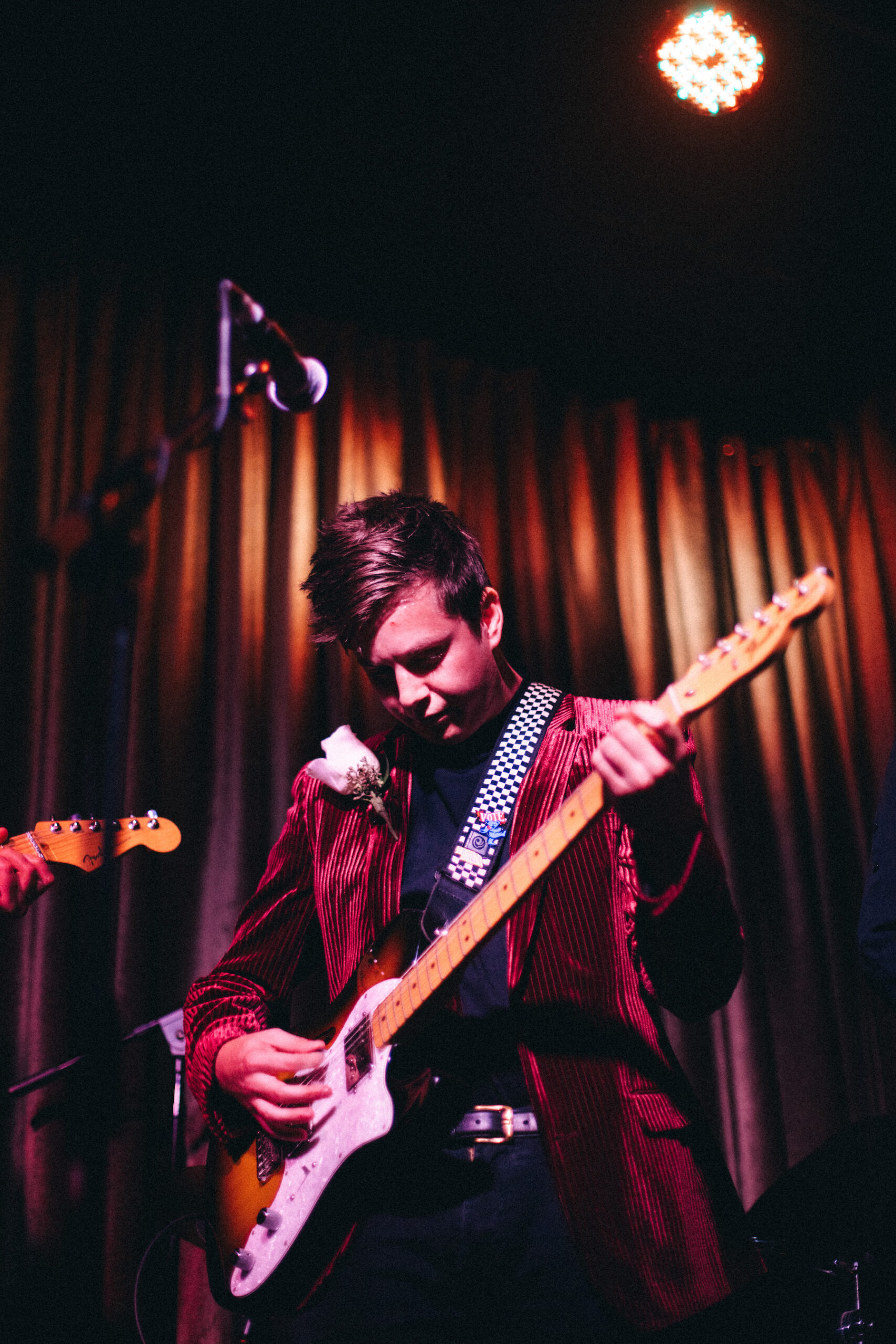
Yeah, definitely. No one really makes their own stuff in a vacuum, and it’s cool that you can really tie it so specifically to a single moment or instance that really set it off for you. Can you talk a little bit more about how you go about writing songs or what inspires you? The movie kind of inspired the project as a whole, but the individual lyrics and all of that. Do you tend to start songs a certain way, lyrics first, melody first, or is it different each time?
JS: I would say pretty much 90% was written on guitar. A little bit was written on piano. But I always write lyrics and instrumentation or just the basic chords at the same time, and then I’ll try and demo it and go back in and add layers. It’s like you always want to find those pivotal lyrical moments and create instrumental moments behind them. That’s kind of the way that I think about it. I want to structure and arrange my songs to make sure those moments really shine through.
What song was the most fun to record?
JS: Oh, man. They were all pretty fun to record. The whole recording process was chaotic too. I recorded all of the drums for all original eight songs in Pittsburgh in one week. My old drummer from my old band, O’Hara (Garrett Grube), he jammed through all the parts for all of the EP songs. Then we got in the studio for 10 hours, he did two takes of each of them.
We used that as the foundation for me to come back here and start recording over them. But this was like three years ago, and then I was trying to find a producer out here to help bring the songs to life even more… ended up meeting Scott Barber, who lives in Echo Park. He’s such an amazing dude, and he worked on “In Your Head,” “Jennywho” and “Isolation”—we even ended up keeping the drums for “In Your Head” and “Fell” that Garrett did. I learned a lot from working with different people. I found working with Scott was great, he was also working with Grace Vanderwaal and a Reggae band called Koffee. He’s working with so many different people, and he’s working with his reggae projects, so he just has such a variety of things that he works on, so it was great to work with him just to have that different perspective. Scott was just a fun, joyful person to be around and helped really bring life to a lot of these songs.
Then I ended up recording “Fell” with my coworker, Tasso Smith. He goes by Thom Sawyr and used to play in a band called Youngblood Hawke. When I was looking for producers, he was like, “Why don’t we do just one song together?” So, that was our project, we just worked on that one song together, working with him was a lot of fun too. Max Datner also laid down some keyboard organ parts on the recordings. Then my guitarist, Andrew Scarborough, also came into the studio.
It sounds like every song has its own story of why they were fun in different ways. It sounds like a lot of it is just to who you got to come and do it.
JS: Yeah, it was bringing in a lot of people that I just liked being around and wanted to make music with. It’s inspiring just knowing that you can go find a drummer to do this one song and we’ll fit for this one song or have a guitarist come in and I have a few different guitarists play on the record. “Jennywho,” in particular, had been passed around so much. It was the second song I wrote. I was in New York for a month living with this band that I played with in college (…) called Tribe Society. The lead singer of that band, Gavin, we played a show with them in Pittsburgh while they were on tour, and I kind of just became Facebook friends with him. Then when I was interning in New York, I literally hit him up and they were on tour, and I was like, “I’m going to be living in New York. Any chance you’re looking for a subletter?”
I wasn’t even expecting him to message me back because who am I? This random guy who opened for you in Pittsburgh. But he did message me back. It was crazy, and I ended up staying in their place. So, every time I go to New York, I always hang out with them. And so when I was staying in the summer, I brought my guitar and I was just working on some songs. We were all hanging out and we kind of wrote the chorus. Well, we wrote the whole song, but the chorus is what stuck. Then once I moved to LA, I kind of rewrote the verses to fit with the theme of the Ruby Sparks project.
Then I started working with this producer, Nick Scalise, who is a really talented musician. I met him at a comedy show that he hosts, and he was like, “Let me hear your music.” So I played him my music and he was like, “Let’s do one song.” So we started working on “Jennywho” We got it to a point where I was pretty happy with it, but it was just missing something, you know? And that at that point I had a bunch of people come in and work on it, and then I feel like once we got Scott in, Scott made the executive decision and was like, “Oh, we need to get new drums on this.”
It was cool to see the song turn from a demo that I did in New York that was kind of this quirky, stoner song when it started out into this song that really defines the record and defines a lot of the emotional feelings. It’s the song that I wrote in New York, finished in LA, and I feel like it’s just a statement about “This is who I was in that moment”. I feel like I worked the hardest on it and it really got to a point where I was happy with it at the end.
I guess that’s part of why you get a producer, someone to have an extra set of ears that may hear things differently from you. Were there any other experiences like that where bringing in someone else changed the song in a pivotal way?
JS: For sure. I feel like every time someone else came on the project I was always hearing different things that I wanted to do with it. When we were recording “Isolation,” my guitarist Andrew was playing, so there’s a riff at the end of the song that kind of drives it to the end, and he was just doing a bunch of different takes, and he did one take, and I was in the booth and I was just like, “That kind of sounded like the descending piano notes in the Beatles—‘A Day in the Life’.” I heard him play something that sounded like that. I’m like, “You should play that. That should be how we end the EP this moment.” So, he ended up doing that exact thing and that is kind of the end moment. Thinking back on it now, it’s like this is a moment on the record where it’s a similar ending. That was the ending of SGT. PEPPER, and that’s such a full stop moment, whereas the end of “Isolation” kind of just tapers off into infinity. I see it as kind of a representation of this is not the end. It’s kind of reinterpreting an idea and taking it as my own. This was the end of that, but now it’s the end of my thing. It has a different meaning, obviously, in this completely different song.
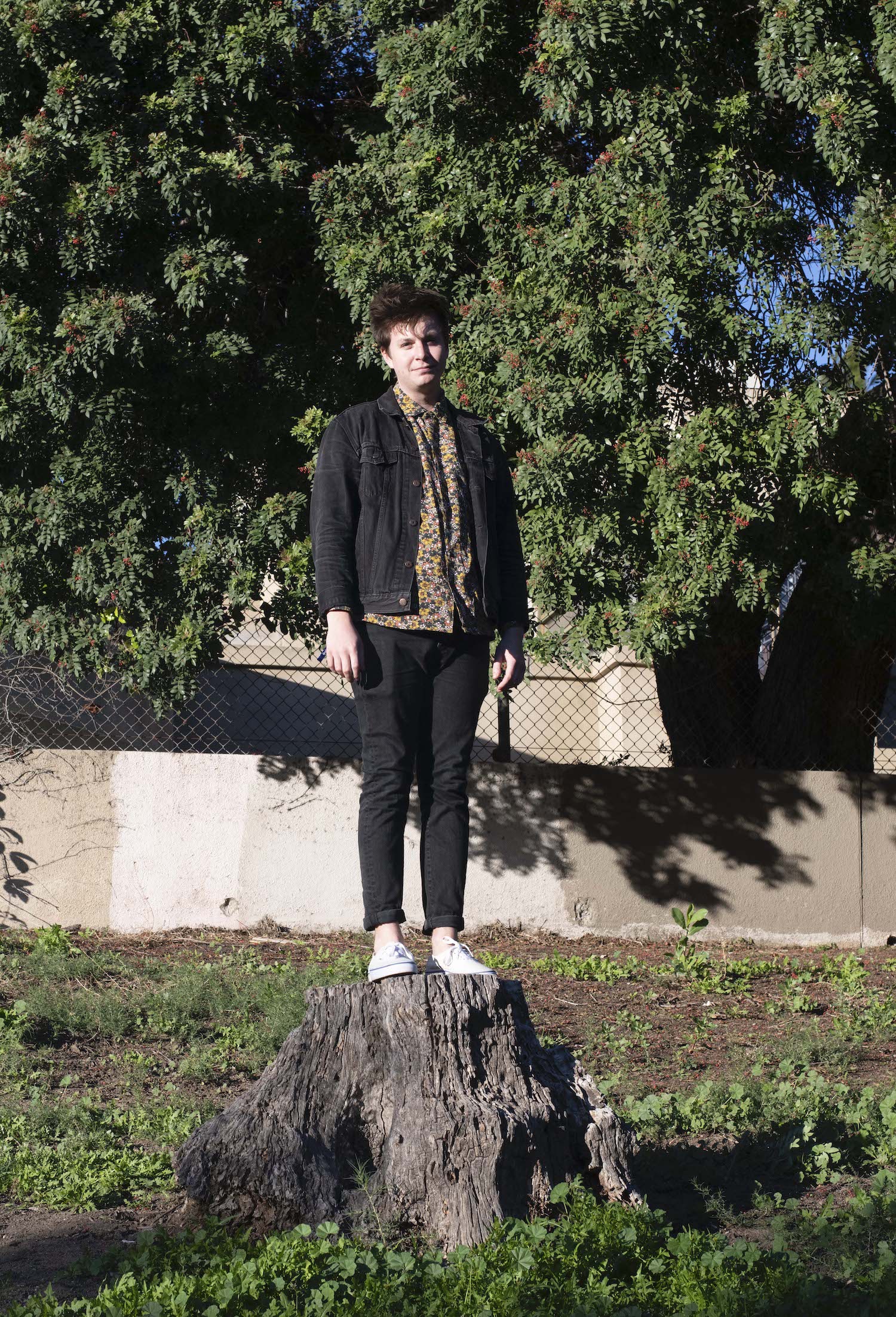
What other musical acts do you think really inspire you? Not just in what you’re writing and how it may sound, but what are some of your favorite bands that you feel like you sound nothing like that still inspire you?
JS: I feel like I’m constantly being inspired by any type of art. Obviously the project is inspired by a film. But it’s also a feeling. It’s like you see a feeling that liberated someone to create an idea, and that’s what really inspires me is just these feelings that liberate me to feel something new. “Oh, maybe that’s why I wasn’t doing that,” or, “Maybe that’s why I was feeling that way,” or, “Maybe that’s why I’m not feeling this.” And I think it’s important to recognize that in art. There’s definitely a lot of artists that are doing that right now, but I guess I can just name a few inspirations for the record.
Father John Misty is a huge inspiration for me. I think it’s great to have inspirations, but you also need to find your own voice and I think that’s one thing that Josh Tillman does really well. He’s telling his own narrative, his own personal story. I struggle a lot with, “Who really cares what Jake Sternberg has to say?” You know? I feel like that’s an internal struggle that most artists go through and I think it’s cool. Similarly, he’s like, “Okay, I’m just going to be Father John Misty, have this eccentric personality and live this character out.” And I feel like that’s kind of what I’m trying to do, but in my own version of it.
How did you get into music in the first place? What made you first interested in it growing up? Was it something that started pretty early on or something you found later in life?
JS: Music has always been a big part of my life. My mom is a piano teacher. I grew up singing in the choir, church choir with my mom. At a young age I kind of always knew I wanted to be in a band.
In eighth grade I was in a School of Rock kind of program called “Harmonium.” That was kind of like the turning point, I think, where I was like, “Okay,” because I really grew as a musician in that year. I learned how to play guitar, I pretty much taught myself, and I just gained a lot of maturity and a lot of just growth as a singer and a performer at a young age. I was just like, “Okay, this is something that I enjoy and that I’m also kind of good at.” I played in bands in high school and college. It has always just been a release for me. I think writing music has always been an escape form of therapy to get my feelings out there, and it’s been cool to see something that I saw as a dream turn into something that I see as a part of me.
You’ve kind of mentioned already the way the EP ends was very hinting at something to come and how this is already the continuation of what Ruby Sparks the movie was. In that sense, what’s next and what themes do you see coming down the road? How are you going to expand on what you’ve already started?
JS: It’s interesting looking back at this project now because most of these songs are two, three years old, and just how much I’ve grown as a person and learned about the world and myself. I think that’s just the thing that has me really excited to write new songs. It’s just I feel like these songs are me at 22 and 23, and I feel like who I am right now is a much more optimistic, positive, and just confident in myself.
It’s funny because I used to always think that I can only ever write songs if I’m like sad or in an emotional mood, and now I think that’s an element of growth. Now I’m realizing, “No, I have so many other feelings that I can explore in this life I want to explore and things that I want to say.” We live in such a political crazy time landscape. I want to be able to say things. I want my voice to be heard, and I feel like not saying anything is almost political, in a way.
Now I’m like, “All right, let’s figure out what I want to say and create another narrative.” Create a narrative of who I am now and who I’m going to be in the next four years or the next two years, or hopefully this project is out sooner than that. I’ve already started writing the next project and I’m really, really excited about these new songs. They’re different, but I feel like it’s the natural progression. Got to keep moving, got to keep finding new things. It’s good to always look back at these songs and these memories and these stories and learn from them. I think it’s so important.
The last album Sternberg listened to was Fiona Apple’s excellent EXTRAORDINARY MACHINE, the first album he ever purchased was LIFE’S BEEN GOOD by Joe Walsh, and in addition to his own EP out Friday he’s looking forward to Phoebe Bridgers’s PUNISHER. IN YOUR HEAD EP is out May 1st. Catch the IG Live set on release day.


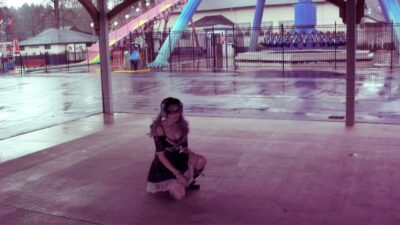
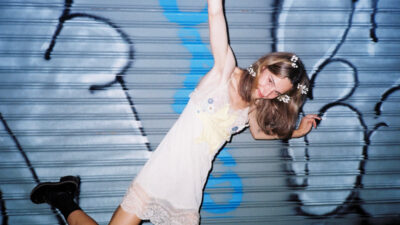
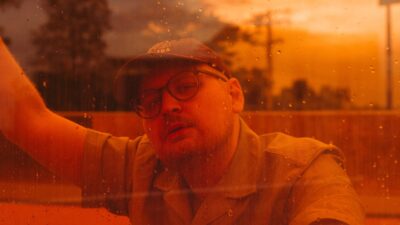
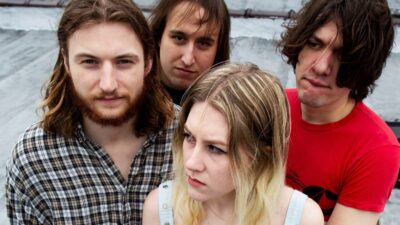
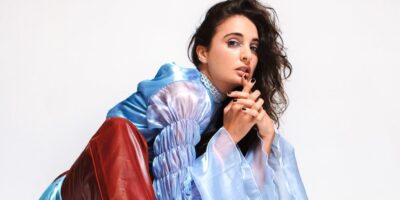
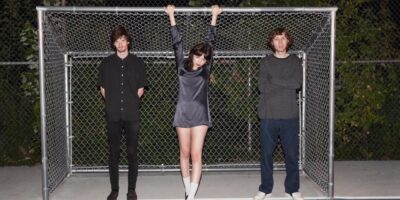

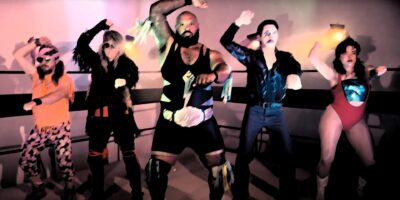
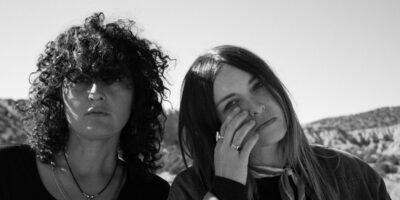
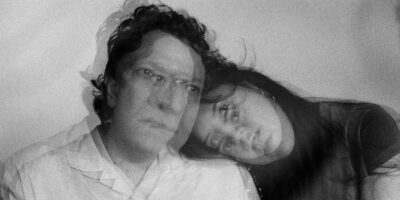




Comments